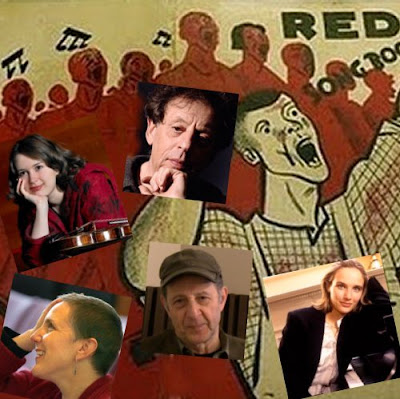What exactly do we mean by 'listening' in this digital age?
Recently Deutsche Grammophon, home of Herbert von Karajan and other renown shamans of sound, announced the launch of DG Playlists in conjunction with Apple Music. Many will have sympathy with the reader's comment on Slipped Disc of "and so the slow death of a label without artistic vision continues". But that comment misses the crucial point that, whether we like it or not, the inescapable popularity of playlists is having as much impact on classical music as the digital piracy that decimated the record industry at the turn of the century. Because playlists are changing the way people listen; as a Forbes article explained: "In this new era of streaming dominance, playlists have taken on an importance never before seen in the music industry". This hegemony of streaming and playlists raises important and uncomfortable questions as to what 'audience' and 'listen' mean in this digital age.
'Listening' has traditionally meant auditioning music with a degree of commitment and engagement. Similarly an 'audience' has been viewed as a committed group of listeners. This commitment was expressed by cleaning a vinyl LP and carefully cueing the stylus, or buying a concert ticket and enduring the vagaries of public transport to and from the venue - as Benjamin Britten told us "Music demands ... some preparation, some effort". But irreversible technological change has progressively eroded the imperative of commitment. First the compact disc made playing an album a whole lot easier. Then MP3 downloads made physical albums redundant. Next, streaming made downloading redundant, and also made the journey to a city centre concert hall even less attractive. Finally the arrival of curated playlists removed the need to even choose the music to be listened to.
Playlists are the muzak of the 21st century and, all too often, provide background music that is listened to with minimal commitment. Listeners are no longer engaged consumers. They are now flies on the wall as music passes by. Audiences are now groups of people with an opportunity to engage with the music. How many actually grasp that opportunity and engage with any depth is an unknown that urgently requires researching. This is not just an arcane semantic debate. For years musicians have protested about the meager royalty payments offered by streaming services. But if a streamed track generates only a fraction of the engagement generated by a track played from a CD, should not the royalty payment for the stream be a fraction of that from a physical album?
At this point longstanding readers will expect me to segue into a riff about the need to revive the lost art of listening. So I am sorry to disappoint, but my views have changed. Years ago we let the digital genie out of the bottle, and we ain't going to get it back in again. The music industry is guilty of appropriating the elements of new media that suits its agenda and disingenuously ignoring those that don't. For years the classical sector has been obsessing about the need to find a new audience, and lamenting about its failure to do so. However the truth is that classical music already has a new audience, but that audience does not sit placidly in city centre designer concert halls.
Visionary composer Pauline Oliveros famously advocated 'deep listening' as the key to appreciating classical music. But the harsh reality is that we face a future of shallow listening. Just as you cannot turn sausages back into pigs, so you cannot teach the public to unlearn its shalllow listening habit. Which means the argument that streaming will bring a new cohort into the deep listening environment of the concert hall is no more than a self-serving myth. This conclusion does not sit comfortably with me, and I am sure it will not sit comfortably with many readers. But classical music's make-or-break challenge is not finding a new audience. It is finding a way to survive with artistic integrity while accepting the inevitable metamorphoses of its audience into flies on the wall that music passes by.
New Overgrown Path posts are available via RSS/email by entering your email address in the right-hand sidebar. Any copyrighted material is included for critical analysis, and will be removed at the request of copyright owner(s).










Comments
while Music Week reports that "The Royal Wedding – The Official Album has so far been streamed more than 100,000 times globally on Spotify".
Note the difference - sales versus opportunity to listen.
https://slippedisc.com/2018/08/sheku-sells-100000-on-decca/
http://www.musicweek.com/talent/read/sheku-kanneh-mason-set-for-royal-wedding-chart-boost/072555
The classical sector filter bubble now works ruthlessly: if the news is not about celebrities and new audiences, ears are firmly closed. At some point the classical industry must realise that the solution to its current severe problems do not lie in markets and audiences. The solutions depend on changing the self-interested and myopic mindsets within the industry.